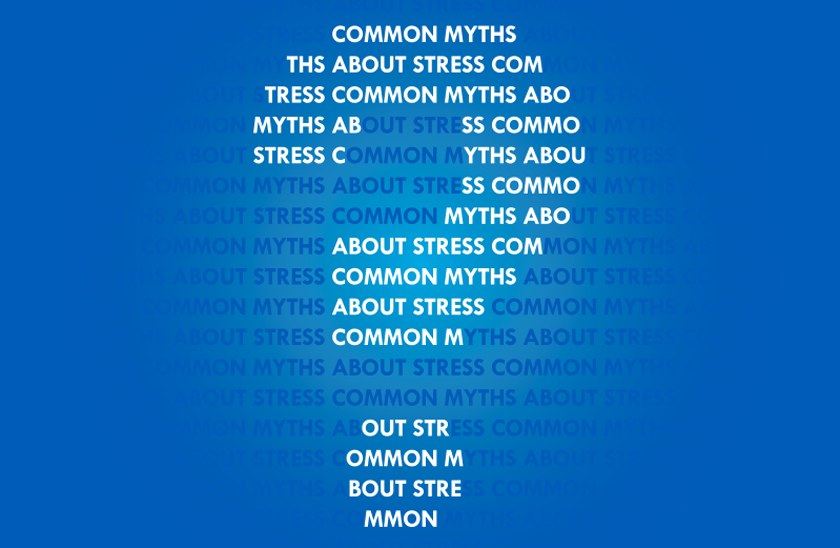We’re all familiar with stress. Considering how common it is in modern life, we’ve also probably heard a few common misconceptions about stress as well. These misconceptions can hold us back in effectively treating the stress in our lives.
Here are some myths about stress and some ways you can manage it better.
Myth 1: Stress Is “Just a Feeling”
Although we often say that we “feel stressed,” stress itself is more than a feeling. Stress is the physical or mental pressure you feel when faced with a situation that is new, unpleasant or threatening. Stress is not something to write off as “just a feeling.”
When left untreated for extended periods of time, it can negatively impact your health just like smoking or obesity. According to the National Institute for Mental Health, high blood pressure, heart disease, diabetes and depression are all serious health issues that are often caused by untreated stress.
Myth 2: No Symptoms = No Stress
It’s a myth that only major symptoms of stress are cause for concern. According to Mayo Clinic, stress may impact your health without you even realizing it. Many minor stress symptoms, such as headaches and indigestion, are easily confused with illness.
Whether you experience irritability, physical aches or sleep deprivation, our brains create patterns of behavior that determine our own automatic reaction to stress. Because that pattern is different for each of us, the way we react to stress even the symptoms of stress we exhibit can be completely different from one person to the next.
Learn more about managing health conditions.*
Myth 3: Stress Is Uncontrollable
Because it’s impossible to control every aspect of our lives, we cannot completely avoid stress and the things that cause it. As mentioned above, stress is an automatic reaction and although we can’t entirely escape it, we can effectively manage stress in three easy steps:
- Identify your stressors. Take time to pinpoint what causes stress in your life. Common stressors include work, finances and relationships, but remember that stressors are different for everyone. Whenever you begin to experience stress, the American Psychological Association suggests writing down the cause, your thoughts and your mood. By keeping a written record, you will be better able to identify what causes stress in your life and develop a plan to address it.
- Recognize your reaction. How does your mood change when you’re stressed? Some people feel more irritable or anxious. What do you do to relieve stress? Common reactions include emotional eating or consuming more caffeine. Whatever your reaction to stress, it’s crucial that you consciously recognize this reaction before you can effectively change it.
- Change your response. Once you have identified your stressors and recognized your reaction, you can begin to train your brain to react differently to stress. Whether it’s working out, visiting with friends or meditation, find what helps you to relax. Replace a negative automatic reaction with one of these positive stress-relieving activities and eventually the brain will change its automatic response pattern.
Lastly, maintaining a healthy lifestyle is a large part of managing stress. Eat a balanced diet, exercise regularly and strive to get enough sleep each night. Studies show that laughter effectively relieves stress, so make it a priority to spend quality time with family and friends. Although we can’t completely avoid stress, developing these healthy habits can prevent stress from becoming a problem in your life.
Advice or recommendations are for informational or educational purposes only, not a substitute for a visit or consultation with your doctor.
Get more information about specific health terms, topics and conditions to better manage your health on bcbst.com. BlueCross BlueShield of Tennessee members can access wellness-related discounts on fitness products, gym memberships, healthy eating and more through Blue365®. BCBST members can also find tools and resources to help improve health and well-being by logging into BlueAccess and going to the Managing Your Health tab.






1 Comment
WellTuned provides inspiration and practical advice for healthy living.
WellTuned does not offer medical advice. Any personal health questions should be addressed to your doctor.